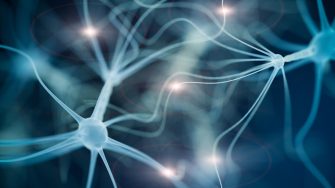
About us
The research of the Metabolic and Neuropharmacology group addresses critical questions concerning the impact of adverse early life events and lifestyle factors on chronic disease risk. Head of the Laboratory, Prof. Morris, uses neuropharmacological approaches to explore underlying brain mechanisms in epilepsy, obesity, diabetes, and the link between obesity and hypertension. Current NHMRC, ARC and DART funded research includes intergenerational transmission of obesity, the psychology of eating, mechanisms contributing to increased risk for diabetes and NPY-based approaches to treating epilepsy.
Obesity: More than half of adults and up to a third of children in Australia are considered overweight or obese. Obesity is an increasing problem and leads to an increased risk of diabetes and high blood pressure. The brain regulates appetite through the action of chemicals that either increase or decrease feeding. Neuropeptide Y (NPY) is present in the brains of mammals and causes increased food intake. Alterations in brain NPY have been described in animal models of obesity.
Prof. Morris has developed models of voluntary high fat feeding in rat and mice. The impact of parental obesity and early childhood events has been a recent key focus of research. Her lab works on the impact of maternal obesity on offspring metabolic and cardiovascular risk, and is currently exploring options for intervention, including exercise and pharmacological approaches. Recent work investigating the role of paternal obesity on the health of offspring demonstrated that when rat fathers were fed a high fat diet to induce obesity and glucose intolerance, the resulting female offspring exhibited impaired glucose tolerance and insulin secretion as young adults (Nature, 2010).
Diabetes: The global prevalence of obesity and related disorders such as type 2 diabetes is increasing across all ages and in both sexes, and is of particular concern in children. Parental obesity is a major predictor of child obesity, with both genetic and environmental factors. Epigenetic mechanisms may provide a possible explanation for how stress and diet in early life cause long-term changes in chronic disease susceptibility
Epilepsy: Work carried out in collaboration with Prof. Terry O’Brien, Royal Melbourne Hospital, is examining the involvement of NPY in a genetic model of absence–type epilepsy. NPY is known to regulate neuronal excitability, and animals that lack NPY are prone to seizures. Our preliminary data in epileptic animals suggest NPY is altered in critical brain regions important in generating seizure-like activity. Current work is extending this finding. If confirmed, these experiments have the potential to identify novel targets for future anti-epileptic drugs.
Team
People related to this group
Projects
Projects related to this group
Behavioural and neurochemical outcomes of early life stress: role of epigenetics and neurogenesis
Targeting NPY mechanisms in rodent models of generalised epilepsy
Neurobiological causes of overeating in a rodent model - hedonic versus homeostatic control
Students
- Golam Mezbah Uddin (PhD)
- Jessica Beilharz (PhD)
- Sabiha Chowdhury (PhD)
- Larrisa Bromwich (Hons)
- Bronte Doyle (Hons)
- Dinithi Samarawickrama (Hons)
- Vivian Le (Hons)




